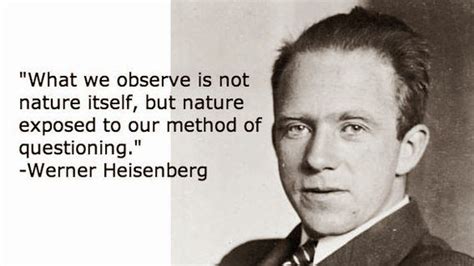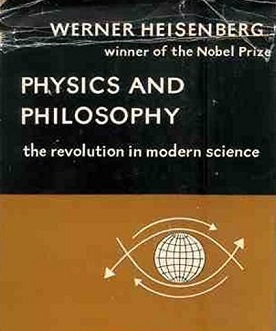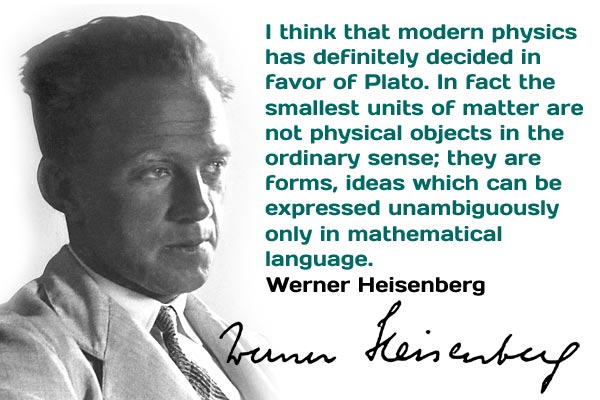|
home | what's new | other sites | contact | about |
|||
|
Word Gems exploring self-realization, sacred personhood, and full humanity
Quantum Mechanics
return to "Quantum Mechanics" main-page
Werner Heisenberg (1901-1976)
From chapter 8 of Dr. Heisenberg's 1958 book, Physics And Philosophy
Since these views had not only been intrinsically connected with natural science of that period but had also found a systematic analysis in some philosophic systems and had penetrated deeply into the mind even of the common men on the street, it can be well understood that many attempts have been made to criticize the Copenhagen interpretation and to replace it by one more line with the concepts of classical physics or materialistic philosophy. These attempts can be divided into three different groups. The first group does not want to change the Copenhagen interpretation so far as predictions of experimental results are concerned; but it tries to change the language of this interpretation in order to get a closer resemblance to classical physics. In other words, it tries to change the philosophy without changing the physics. Some papers of this first group restrict their agreement with the experimental predictions of the Copenhagen interpretation to all those experiments that have hitherto been carried out or that belong to normal electronic physics. The second group realizes that the Copenhagen interpretation is the only adequate one, if the experimental results agree everywhere with the predictions of this interpretation. Therefore, the papers of this group try to change quantum theory to some extent in certain critical points. The third group, finally, expresses rather its general dissatisfaction with the results of the Copenhagen interpretation and especially with its philosophical conclusions, without making definite counterproposals. Papers by Einstein, von Laue and Schrodinger belong to this third group… However, all the opponents of the Copenhagen interpretation do agree on one point. It would, in their view, be desirable to return to the reality concept of classical physics or, to use a more general philosophic term, to the ontology [“what is”, the reality] of materialism… It should be noticed at this point that the Copenhagen interpretation of quantum theory is in no way positivistic. For, whereas positivism is based on the sensual perceptions of the observer as the elements of reality, the Copenhagen interpretation regards things and processes which are describable in terms of classical concepts, i.e., the actual, as the foundation of any physical interpretation. At the same time we see that the statistical nature of the laws of microscopic physics cannot be avoided, since any knowledge of the 'actual' is—because of the quantum-theoretical laws — by its very nature, an incomplete knowledge. The ontology of materialism rested upon the illusion that the kind of existence, the direct 'actuality' of the world around us, can be extrapolated into the atomic range. This extrapolation is impossible, however. A few remarks may be added concerning the formal structure of all the counterproposals hitherto made against the Copenhagen interpretation of quantum theory. All these proposals have found themselves compelled to sacrifice the essential symmetry properties of quantum theory (for instance, the symmetry between waves and particles or between position and velocity). Therefore, we may well suppose that the Copenhagen interpretation cannot be avoided if these symmetry properties—like the Lorentz invariance in the theory of relativity—are held to be a genuine feature of nature; and every experiment yet performed supports this view.
|
|||
|
|


